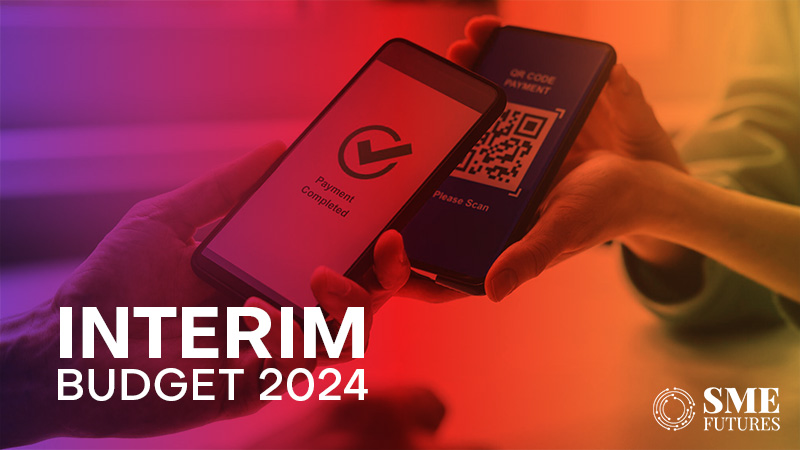As India braces for its Interim Budget, fintech startups eagerly anticipate tailored policies to fuel their dynamic growth. Positioned as catalysts for financial inclusion and efficiency, these startups seek regulatory reforms, tax incentives, and R&D support. With a finger on the pulse of innovation, they hope for a budget that not only nurtures their disruptive spirit but also fosters an environment conducive to sustained success. As the countdown begins, the fintech community awaits pivotal announcements that could define their trajectory in the upcoming fiscal year.
Effect of deductions for home loans on affordable housing
On being asked if more deductions for home loans boost affordable housing, Kunal Varma, CEO of Freo replied that “The potential for boosting affordable housing is seen in the proposed increase in the tax deduction limit. Home loans may become more attractive, with the net cost of borrowing for home buyers being reduced.
A rise in demand for affordable homes could be facilitated, spurring the construction and real estate sectors, thereby creating a positive economic ripple effect. More disposable income may be put into the hands of those who are the primary target customers for budget housing. This move is expected not only to provide a boost to the housing and real estate sector but also to ancillary sectors, while a significant sentiment boost is anticipated.
Home loan rates have risen due to factors such as central bank interest rate hikes. A higher interest is now being paid by the average home loan customer compared to a few years ago. Additionally, homes have become more expensive due to an increase in commodity prices (steel, cement, etc.). This move would be welcomed as it is foreseen to result in additional savings in consumer’s pockets.”
Expectations in the Fintech, Crypto, and digital payment sectors
Further, Varma replied to the expectations in Fintech, Crypto and digital payment sectors that it includes the increasing collaboration between Fintechs and regulators to stabilise and standardise operations for legitimate companies, consequently driving higher trust in the ecosystem. The focus is also on the acknowledgement that collaboration and partnerships, rather than competition, are the means to drive financial inclusion.
As smarter and safer digital solutions, coupled with responsible business models, are adopted, obtaining credit is anticipated to be easier and safer from fraud. Specific issues in the sector will be addressed by self-regulatory organisations (SROs), helping it reach its full potential. Stronger ties with digital banking units (DBUs) and the expansion of UPI for digital lending are being pushed for by the online credit industry.
The introduction of credit on UPI is foreseen to lead to innovative sachet credit offerings, making small ticket lending more efficient and affordable. There is potential for a complete transformation in how affordable credit reaches the last mile and various customer segments. Simultaneously, this opportunity will test industry players on their ability to evolve and adapt.
It is also believed that this year’s budget provides an opportunity for the government to increase crypto taxation revenue by encouraging trading on Indian exchanges. This is considered an opportune moment for the government to enhance this safe ecosystem. A regulatory regime that protects consumer interests in this sector is expected to build trust and stability.
“Across the board, a stronger focus on protecting consumers from increasing cybersecurity threats is anticipated to be a significant agenda point for digital payment networks.”
Speaking on the ‘expectations or recommendations for the Interim Budget 2024,’ the anticipation is expressed by Anuj Arora, Co-founder & CEO of SahiBandhu Gold Loans.
“The Interim Budget 2024 is expected to be aligned with the government’s mission of uplifting the underprivileged. The government is urged to introduce beneficiary schemes, especially as the General Sabha election approaches, focusing on the socio-economic empowerment of the marginalised. The pivotal role of the FinTech and tech-based gold loan industry in reshaping financial services is acknowledged.”
Policies supporting growth, particularly in Tier 2, 3, and 4 cities, are hoped for, aiming to integrate rural communities into the formal banking system. A significant stride would be marked by incentivising FinTech dedicated to empowering SMEs through financial and technical interventions.
Recommendations by Arora include addressing loan disbursement, including loans against gold/jewellery, and advocating for regulations fostering collaboration between traditional banks and digital lenders for accessible loans. With the budget on the horizon, a budget that propels innovation and inclusion in the rapidly evolving FinTech and gold-tech landscape is eagerly anticipated by SahiBandhu Gold Loans, the largest gold loan aggregator platform.
Pramod Kathuria, Founder and CEO of Easiloan says that there may be potential changes in tax slabs, deduction limits, etc. He also believes that there can be increased focus on government schemes, with a possible hike in rural welfare programs like PM-KISAN (farmer cash transfer) in the coming budget since Jefferies predicts a 7-8% rise in social spending (excluding subsidies).
Brokerage firm Jefferies emphasizes the likely increase in welfare spending, possibly aligning with PM Modi’s “Modi’s guarantees” campaign strategy. Kathuria further said that despite limitations imposed by the election year, the Interim Budget will be closely watched for its potential impact on key areas like taxation, rural welfare, and specific policy initiatives.











